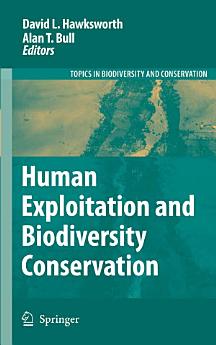Human Exploitation and Biodiversity Conservation
關於這本電子書
This book gathers together a wide range of contributions addressing diverse aspects of front-line human involvement in biodiversity exploitation and conservation. Its scope is broad, the organisms explored ranging from birds, invertebrates and mammals – both terrestrial and aquatic – to crops and medicinal plants. Meanwhile, the issues addressed include land use changes, the importance of gardens, hedges and green lanes, housing developments, hunting, invasive species, local community involvement, sacred groves, socioeconomic factors and trade.
These peer reviewed case studies come from studies in 17 countries in Africa, Asia, Europe, and North and South America. Providing a snap-shot of on-going action and state-of-the-art research, rather than a series of necessarily more superficial overviews, this collection will be of particular interest to courses including biodiversity and/or conservation issues, and to advanced students and researchers working in related fields.
Reprinted from Biodiversity and Conservation 15:8 (2006).







